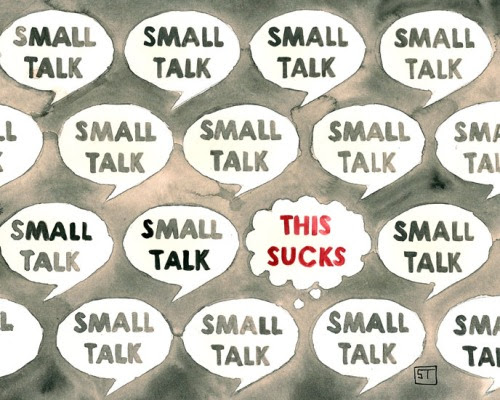Vibrant Days….
Flourishing with Sensory Processing Sensitivity
December 2018
Yes the season of “glad tidings and great joy” has arrived along with a few other things. I appreciated these practical survival tips from a kindred spirit.
CASIGY’s Secrets to Overcoming Holiday Blues – Creative, Sensitive, Introverted Gifted People
SHARON BARNES
 In the northern hemisphere, December brings darkness, and for some this brings the blues, AKA depression. As the loss of light progresses, veils of separation may also thin, connecting us more easily to our inner depths. Old issues we have dealt with can resurface, sometimes with an intensity that belies the work we have already done with them. Typical CASIGY (Creative, Sensitive, Acutely, Aware, Introverted, Gifted) issues such as inferiority, perfectionism, and a feeling of not belonging rear their ugly heads with a vengeance. New ones may wiggle in, too. Then there’s the waning economy; the holidays; you name it. The darkness outside us can join with the darkness within us, taking us deeper and deeper.
In the northern hemisphere, December brings darkness, and for some this brings the blues, AKA depression. As the loss of light progresses, veils of separation may also thin, connecting us more easily to our inner depths. Old issues we have dealt with can resurface, sometimes with an intensity that belies the work we have already done with them. Typical CASIGY (Creative, Sensitive, Acutely, Aware, Introverted, Gifted) issues such as inferiority, perfectionism, and a feeling of not belonging rear their ugly heads with a vengeance. New ones may wiggle in, too. Then there’s the waning economy; the holidays; you name it. The darkness outside us can join with the darkness within us, taking us deeper and deeper.
The calendar year is winding down and a new one is quickly creeping up. We may find ourselves thinking about where our lives are compared to where we wanted them to be by now. Many people do this; what’s different for CASIGY’s? CASIGY’s are likely to set the bar so high that it’s never reachable. We’re not satisfied with our accomplishments, even when others are. We also may have higher levels of concern and anxiety for the future, based on our broader, deeper awareness of issues and their implications.
December may also be a time of reckoning in terms of relationships. How are our relationships doing? What relationships, some of us may say? We may be acutely aware of the research that shows how much healthier people are who are part of a community. But community can be especially difficult for CASIGY’s. We’re highly sensitive introverts – so taking time and having the energy for interpersonal relationships is very difficult, if not impossible at times. It’s easy for CASIGY’s to feel like misfits. We may have been, and felt like outsiders since we were children, so we may have concluded that we didn’t belong and couldn’t fit in.
Like the legendary reindeer Rudolph, we may have tried to hide or camouflage our gifts so we would fit in and be accepted. As is often the case, the coping mechanisms we developed in childhood to survive, no longer serve us as adults. It’s time to recognize that the conclusions we made when we were young — that as CASIGY’s we are total misfits and therefore we don’t belong, don’t deserve and can’t have the good life that we want — is not accurate.
When we were young, these conclusions may have helped us make sense of our differences and difficulties. Now they imprison us. And yet they feel so necessary. In fact, there seems to be an inverse relationship here. The more crucial they were to our survival as children, the more essential they seem AND the more they mess us up now. Our differences are real. Our emotions are real. Here’s the kicker: the conclusions we drew about our differences, our emotions, and their meaning are not real. Just because we feel stupid or small or helpless, does not mean that we are. Just because we feel inferior, inadequate or like we don’t belong, does not mean it’s true. After all, we drew these conclusions when we were very young, usually by the age of 3-5. We don’t have to let a four year old run our lives now; yet that is exactly what we do when we live by the decisions we made back then.
 Like Rudolph, we can transform our differences into assets by our recognizing our unique gifts, and using them to make a positive contribution. In the legend, Rudolph saved the day by leading the way for Santa to deliver his gifts. The very characteristic that got him ostracized became his entree’ into acceptance. His nemesis became his greatest asset. Yours can too.
Like Rudolph, we can transform our differences into assets by our recognizing our unique gifts, and using them to make a positive contribution. In the legend, Rudolph saved the day by leading the way for Santa to deliver his gifts. The very characteristic that got him ostracized became his entree’ into acceptance. His nemesis became his greatest asset. Yours can too.
Also like Rudolph, you can stop ignoring your pain and heal it; you can stop hiding your gifts so you can maximize them to save your life and the lives of others. What bright red nose is shining in your life? What difference are you trying to hide? What bright red alarm signal in your life are you trying to ignore? What in your life has made you feel like a misfit?
-This is your goldmine.
-This is where to look for your gift.
-This is also what you can transform and activate to make a significant difference in the lives of others.
How do we overcome the Holiday Blues and December’s depression? By befriending — no — by embracing the previously feared darkness within. We overcome this darkness by going into the darkness. Only then can we find and let in the Light. What do I mean by going into the darkness to find the light? On a practical level, one example would be washing out a wound. Several years ago, I fell while riding my bike and landed on one knee. I washed it out, but in my high sensitivity, I didn’t have the ‘stomach’ for the pain involved, so I didn’t scrub it out deeply. I kept telling myself, “tomorrow it will hurt less, and I’ll do it,” but it didn’t stop hurting until well, until after it healed, with the dirt still embedded in the skin on that knee, where it is to this day. I apparently cleansed the dirt in my washing it, as it never got infected. I went partially into the dark, but not all of the way, so I still carry some of that darkness around with me every day.
 Another example of going into the darkness to find the light would be exploring our resistance to something we say we want to do. I want to exercise every day, or that’s what I tell myself. But when it comes down to it, it’s too cold outside (or too hot in the summer), I don’t want to stop other things I’m doing (or they take longer than I had anticipated, and I don’t want to stop until I’m finished) so I can go to bed earlier so I can get up earlier so I can exercise before I go to work. What is that glass ceiling in my life between what I say I want and what I want ENOUGH to give up the other things I will have to give up in order to achieve them? I can only find out what it is by exploring the dark recesses of my life, by digging and scrubbing deep enough to ferret out the depths of what is going on inside me.
Another example of going into the darkness to find the light would be exploring our resistance to something we say we want to do. I want to exercise every day, or that’s what I tell myself. But when it comes down to it, it’s too cold outside (or too hot in the summer), I don’t want to stop other things I’m doing (or they take longer than I had anticipated, and I don’t want to stop until I’m finished) so I can go to bed earlier so I can get up earlier so I can exercise before I go to work. What is that glass ceiling in my life between what I say I want and what I want ENOUGH to give up the other things I will have to give up in order to achieve them? I can only find out what it is by exploring the dark recesses of my life, by digging and scrubbing deep enough to ferret out the depths of what is going on inside me.
 And how can that be done? There are many ways, probably as many ways as there are people. Journaling, praying, meditating, talking things over with a friend or family member, reading stories, essays and books that others have written about the area we are struggling with, the list could go on and on. You may have noticed that one of my favorite ways to dig deeper in my inner life is to combine several approaches in one. I make something that metaphorically represents some aspect of my dilemma, and follow that artistically and imaginatively until it takes me to a new place. In that new place, I have new awareness, new insight, and new energy to take back to my life and apply to my dilemma. Also, as I pursue creative projects, sometimes a symbolic or metaphorical connection with some issue in my life becomes apparent as I work on it. I have shared a number of these in previous newsletters.
And how can that be done? There are many ways, probably as many ways as there are people. Journaling, praying, meditating, talking things over with a friend or family member, reading stories, essays and books that others have written about the area we are struggling with, the list could go on and on. You may have noticed that one of my favorite ways to dig deeper in my inner life is to combine several approaches in one. I make something that metaphorically represents some aspect of my dilemma, and follow that artistically and imaginatively until it takes me to a new place. In that new place, I have new awareness, new insight, and new energy to take back to my life and apply to my dilemma. Also, as I pursue creative projects, sometimes a symbolic or metaphorical connection with some issue in my life becomes apparent as I work on it. I have shared a number of these in previous newsletters.
I also like to walk in nature and meditate on what I see and hear and consider what lessons it has for me and the dilemmas I am facing. Another of my favorites is stream-of-consciousness journaling, where I write every thought that enters my head, and I do it for a designated number of pages or amount of time. That can take my thought process deeper or broader, or make new connections, and in an uncanny way, transport me to a new mental/emotional/spiritual place.
Came across this beautiful story of what can happen when women find and use their voice.
Check out this story on CNN
https://www.cnn.com/2018/08/16/us/cnnheroes-ellen-stackable-poetic-justice/index.html
Thinking of giving up sugar? I’ve never been so inspired to say no to sugar after listening to this podcast.
Listen to From Sugar in Tea, To Butter in Coffee: Tom Watson’s Weight Loss Story #542 from Bulletproof Radio in Podcasts.
https://player.fm/series/1412085/220747712

One of my ongoing challenges that appears more often during the holidays is how to handle small talk. Thank you Melene for giving words to my angst.
Small Talk Sucks
MELENE MCALMONT

Fact: more small talk occurs between the last week of November and the first of January than any other time of the year.
Okay, I made that up, but it certainly feels true. We are just beginning the Small Talk Season and I don’t look forward to it.
Someone found my blog by searching the question “why do highly sensitive people hate small talk?” and I wondered “doesn’t everyone hate small talk?” Everyone except those people who are comfortable wherever they are and talking to whomever’s around. Who are these people? Instead of asking why do people hate small talk, we should be asking how can anyone like it?
I don’t know if all highly sensitive people hate small talk. I do and here are my reasons. You may relate:
Small talk is too SMALL — It’s meaningless, repetitive, and meaningless (that needed to be repeated). I can’t stand meaninglessness but don’t mind superficial topics. Except I like going DEEP on superficial topics, something that small talk doesn’t allow. This quote from Susan Cain’s Quiet: The Power of Introverts In A World That Can’t Stop Talking hits the nail on the head:
It’s not that there is no small talk…It’s that it comes not at the beginning of conversations but at the end…Sensitive people…’enjoy small talk only after they’ve gone deep’ says Strickland. ‘When sensitive people are in environments that nurture their authenticity, they laugh and chitchat just as much as anyone else.’
Small talk requires too much energy. It doesn’t return the energy I put into it. I have to think of things to say to empty questions, observations, and ideas. It’s harder to do than talking about weightier topics.
Small talk forces me to think quickly about stuff I don’t care about. Again, this requires energy.
Small talk is full of “non-questions”. Non-questions are questions asked that seem like the questioner wants to know something but they actually don’t care about the answer. I have a crazy habit of listening to people and trying to answer carefully people’s non-questions and when I do, I seem like the weird one for treating the question like an earnest one. Again, energy. How do you know a question is a non-question? While you’re in the middle of answering it the person who asks looks bored, cuts you off, or you get a feeling the person just felt like hearing their own voice or wanted to seem like someone who asked questions that seemed like they cared about another human being.
Small talk is boring. I never find out anything interesting about someone through small talk.
Small talk kills the beautiful silence. I like silence.
Small talk gets in the way. I’m too busy thinking, feeling, noticing to talk about the weather.
Small talk doesn’t allow me to do what I love. I prefer long, big bursts of talk to short, small talk. I’m a passionate ranter.
I understand why small talk exists. It will always exist. I would love to live in a world where we could all go straight to being best friends with everyone and by-pass the small talk stage that occurs at the beginning of every relationship. Some relationships only exist at the small talk stage because without it, other more meaningful relationships wouldn’t thrive. I would love to live in a world where silence was as valued as talking. But we do not live in that world. Polite small talk is a necessary evil in our society.
I figured out a couple of flawed ways to enjoy(?) small talk. To make small talk more bearable to me. Feel free to use them. I have to be in the right mood and right state of mind to use these tips myself.
1. I get super interested in someone by asking a lot of very specific questions until I find a topic that doesn’t bore me. I don’t do it often because it’s sooo annoying to hear myself talking a lot and it makes me seem like an attorney. But! Usually I can get someone to start talking about something that is actually fascinating and it stops feeling like we’re chit-chatting. This happens so rarely, but when it does it’s sweet.
2. I ask people how they FEEL. Not in that touchy-feely way, but I express how I experience something and encourage the other person to do the same. I ask “Was that fun? Was that exciting? Were you comfortable? Did that make you angry? Was that difficult?” Doing this stops small talk in its tracks.
One of two things happen when I do this. Either the person tells me how they feel about something and it’s interesting and we start having a real conversation. Or, they don’t answer. They don’t know how to answer. I’ve interrupted their blah, blah, blah. They don’t experience things or they don’t know how to talk about it or they don’t want to talk about it and it’s fascinating to witness it.
Those people tend to stop talking to me.
MM
Whether you are raising one or grew up as one these words are spot on and deliciously real.
https://www.quietrev.com/advice-for-parents-of-highly-sensitive-children/
